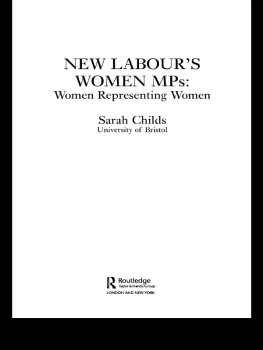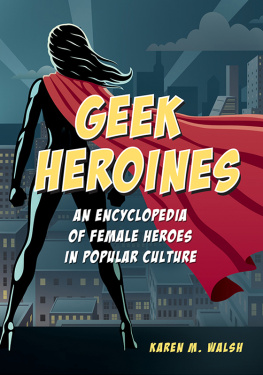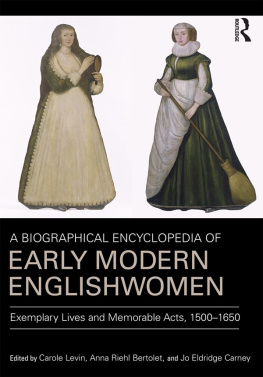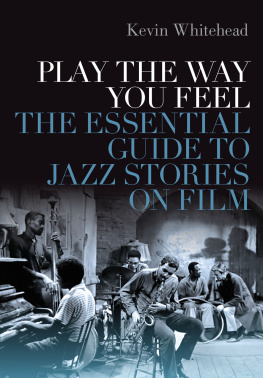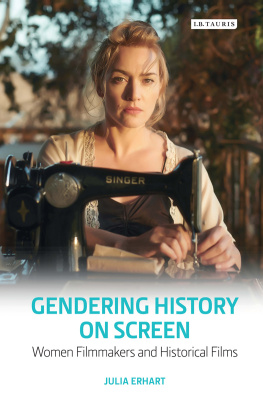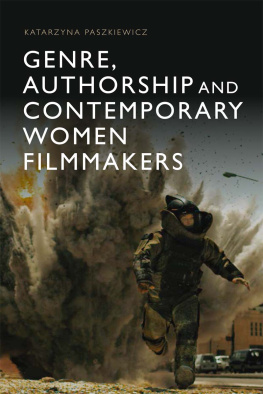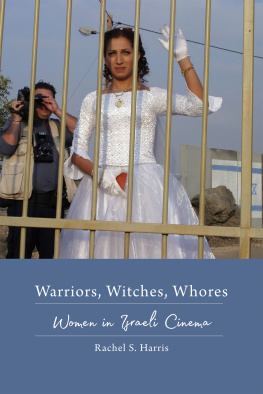
Biopics of Women
This book is an accessible overview of biographical fiction films of women and is structured around four of the most popular subjects of female biopics: queens and political figures; entertainers; writers; and subjects of current affairs.
While the biopic is commonly accepted as a deeply conservative cinematic form that represents glorification of the past and of the self-made individual, a number of biopics of women challenge all of these characterizations. They show the genre to be much more complicated and challenging to regressive ideas than has been proposed, and open to different formats and thematic possibilities. Providing an overview of key sub-genres complemented by analyses of key texts that illustrate major aspects of each category, Biopics of Women examines the development of biographical films in each area and the images of successful women they project in order to investigate the issues involved in womens representation in the genre as a whole.
This is a lively and readable text for students and scholars in Gender and Film, Gender and Media, and Womens Studies.
Karen Hollinger is Professor of English and Film Studies in the Department of Literature at the Armstrong Campus of Georgia Southern University, USA. She teaches courses in Film Studies, Gender and Womens Studies, and Literature. She is the author of Feminist Film Studies (2012), The Actress: Hollywood Acting and the Female Star (2006), and In the Company of Women: Contemporary Female Friendship Films (1998).
First published 2020
by Routledge
2 Park Square, Milton Park, Abingdon, Oxon OX14 4RN
and by Routledge
52 Vanderbilt Avenue, New York, NY 10017
Routledge is an imprint of the Taylor & Francis Group, an informa business
2020 Karen Hollinger
The right of Karen Hollinger to be identified as author of this work has been asserted by her in accordance with sections 77 and 78 of the Copyright, Designs and Patents Act 1988.
All rights reserved. No part of this book may be reprinted or reproduced or utilised in any form or by any electronic, mechanical, or other means, now known or hereafter invented, including photocopying and recording, or in any information storage or retrieval system, without permission in writing from the publishers.
Trademark notice: Product or corporate names may be trademarks or registered trademarks, and are used only for identification and explanation without intent to infringe.
British Library Cataloguing-in-Publication Data
A catalogue record for this book is available from the British Library
Library of Congress Cataloging-in-Publication Data
Names: Hollinger, Karen, author.
Title: Biopics of women / Karen Hollinger.
Description: London ; New York : Routledge, 2020. | Includes bibliographical references and index. Identifiers: LCCN 2019058512 (print) | LCCN 2019058513 (ebook) | ISBN 9780367857271 (hardback) | ISBN 9780367857264 (paperback) | ISBN 9781003014645 (ebook) | ISBN 9781000027235 (adobe pdf) | ISBN 9781000027273 (epub) | ISBN 9781000027259 (mobi) Subjects: LCSH: Biographical films--History and criticism. | Women in motion pictures. Classification: LCC PN1995.9.B55 H65 2020 (print) | LCC PN1995.9.B55 (ebook) | DDC 791.43/651--dc23 LC record available at https://lccn.loc.gov/2019058512
LC ebook record available at https://lccn.loc.gov/2019058513
ISBN: 978-0-367-85727-1 (hbk)
ISBN: 978-0-367-85726-4 (pbk)
ISBN: 978-1-003-01464-5 (ebk)
This book is dedicated to my grandchildren Zach, Gigi, and Toni
I would like to thank everyone at Routledge for their help in guiding the manuscript through the production process. Special thanks to Alexandria McGregor, Eleanor Catchpole Simmons, Rebecca Wise, and Natalie Foster. This project has also benefitted from a number of Research and Scholarship Grants from Armstrong State University, now Georgia Southern University, Armstrong Campus. I am also grateful for the bibliographical work of my student research assistants: Frankie Jackson, Angela Edwards, and Nick Godfrey. Finally, I want to thank my family: Walt, Michael, Cathy, Geoff, Bridget, Zach, Gigi, and Toni for their companionship and encouragement throughout the writing process.
Biopics of Women offers an overview of English-language biographical fiction films of women. It examines four of the most popular sub-genres of the female biopic: films about the lives of queens and other female political figures, entertainers, headliners (biopics taken from current news stories), and writers. It discusses the development of biographical fiction films in each of these areas and the images of the successful woman they project. An examination of these four sub-genres is complemented by analyses of key texts that illustrate major aspects of each category. The objective is to cover a range of films in different sub-genres in order to investigate the issues involved in womens representation in the genre as a whole. The investigation begins with a look at the major characteristics of the genre and its history especially as they relate to the representation of women.
This study of biopics of women suggests that some of the common conceptions about the genre merit reconsideration. Although the genre, especially as it developed in Hollywood, is overwhelmingly male, there are a significant number of biopics of women that deserve attention. The critical consensus has been that the biopic is a deeply conservative cinematic form that represents a backward-looking glorification of the past, promotes the cult of the individual, and supports the idea of the self-made man. Yet a number of biopics of women challenge all of these characterizations. They show the genre to be much more complicated and challenging to regressive ideas than has been proposed. The films multi-generic and multi-subgeneric nature makes them especially open to different formats and thematic possibilities from historical portrayals to melodramas and musicals. The history of the biopic is not just confined to male-focused portrayals but includes a significant number of biopics of women that extend all the way back to the silent era, through the Hollywood studio period, and into contemporary Hollywood, British, and independent films. Although there have always been arguments that the biopic is on its last legs (see, for instance, Gustafson, (1977, p. 58), Custen (1992, p. 2), and Oliver (1993, pp. 5657)) those legs seem to be very sturdy as biopics continue to receive critical acclaim, box office popularity, and major award nominations.
Dennis Bingham in Whose Lives Are They Anyway?: The Biopic as Contemporary Film Genre argues that Hollywood studio-era biopics not only told mens stories but promoted male values, accomplishments, and heroism, while reducing female protagonists to pathetic victims and encouraging female spectators to take pleasure in watching their like suffer on the screen. My study does not support this very negative evaluation of the Hollywood studio-era womens biopic. It also does not support Binghams characterization of the queen biopic as filled with tales of emotionally busy monarchs who wore their crown unwillingly and with regret and spent most of their time on the throne lamenting their failed romances (2010, pp. 2425). Nor does it agree with Binghams characterization of what he calls 1950's warts and all biopics as focused on flawed heroines who are washed out as human beings and wash themselves out (2010, p. 231). Another mischaracterization sees contemporary female biopics as divided into two groups: one following the victimization of women that dominated earlier biopics and the other composed of rare feminist-inspired productions that attempt a revisionist approach but find it difficult to rise above their lamentable predecessors (2010, pp. 2425).


